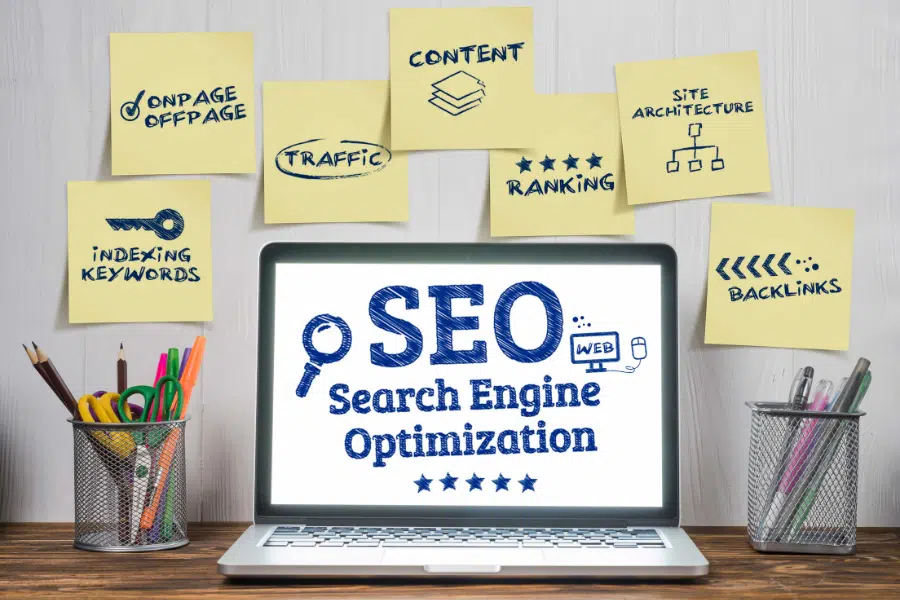Why SEO Matters in 2024
Website for SEO Success in 2024: Search engines are the internet’s gatekeepers. Did you know that 68% of online experiences begin with a search engine? In 2024, the importance of SEO has skyrocketed, especially with the growing reliance on digital services. Whether you run an e-commerce store, a blog, or a corporate website, SEO ensures your audience finds you amidst the sea of competitors.
Moreover, search engines have become smarter. They focus on delivering accurate, valuable, and user-centric results. Websites that fail to meet these standards risk being buried on page two or beyond—where traffic is almost nonexistent. So, mastering SEO isn’t just beneficial; it’s crucial.

Understanding Search Engine Algorithms
Search engine algorithms dictate how your site ranks for specific queries. These algorithms are more complex than ever, with AI and machine learning playing critical roles. Google’s updates like BERT and MUM prioritize content relevancy and context, meaning keyword stuffing is no longer effective.
In 2024, search engines emphasize:
- User experience (UX)
- Mobile responsiveness
- High-quality, engaging content
- Security features (e.g., HTTPS)
Understanding these priorities can help you tailor your strategy to what search engines want.
Conducting Comprehensive Keyword Research
Tools for Effective Keyword Research
Keyword research is the foundation of any SEO strategy. Without the right keywords, your content won’t reach the audience searching for it. Thankfully, tools like Google Keyword Planner, Ahrefs, and SEMrush simplify the process. They help you identify high-volume, low-competition keywords relevant to your niche.
But it’s not just about search volume. Look at keyword difficulty (KD) and search intent. What is your audience truly looking for? For instance, if they type “best running shoes 2024,” they’re likely ready to buy—making it a lucrative keyword.
Long-Tail Keywords vs. Short-Tail Keywords
Short-tail keywords are broad and competitive (e.g., “running shoes”). Long-tail keywords, on the other hand, are specific and targeted (e.g., “best waterproof running shoes for trails”). While short-tail keywords drive more traffic, long-tail keywords convert better because they match the user’s intent.
On-Page SEO Strategies
Optimizing Meta Titles and Descriptions
Meta titles and descriptions are your site’s first impression. They appear in search results and are crucial in driving click-through rates (CTR). Ensure your titles are:
- Under 60 characters
- Compelling and keyword-rich
Descriptions, meanwhile, should summarize the content in 155 characters or less, using a clear call to action (CTA).
Crafting SEO-Friendly Content
Content is king, and quality reigns supreme in 2024. To rank higher:
- Write for humans first, search engines second.
- Use primary and secondary keywords naturally.
- Keep your paragraphs short and engaging.
Pro Tip: Break up your content with bullet points, numbered lists, and visuals. Search engines—and readers—love structured content.
Website for SEO Success in 2024
The Role of Header Tags (H1, H2, H3)
Header tags structure your content, improving readability and SEO. Each page should have one H1 tag (your main title), while subheadings (H2, H3) guide readers through the content. Search engines use these tags to understand your content’s hierarchy, so don’t skip them!
Image Optimization Tips
Images can make or break your page speed. To optimize them:
- Use descriptive file names (e.g., “running-shoes-2024.jpg”).
- Compress images to reduce file size without compromising quality.
- Add alt text to describe the image for accessibility and SEO.
Technical SEO Best Practices
Mobile-Friendly Design
With mobile devices accounting for over 50% of global web traffic, your website must be mobile-friendly. Use responsive design, ensuring your site looks and functions well on any screen size.
Site Speed Optimization
Did you know a 1-second delay in page load time can reduce conversions by 7%? Tools like Google PageSpeed Insights or GTmetrix can help identify speed issues. Consider:
- Compressing images
- Enabling browser caching
- Minimizing CSS and JavaScript
Leveraging Structured Data
Structured data, like schema markup, helps search engines understand your content better. It also enables rich snippets (e.g., star ratings, and product prices), boosting your CTR.
Website for SEO Success in 2024

